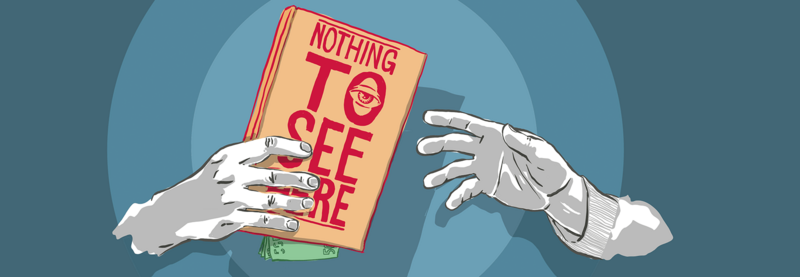Alina Mungiu-Pippidi on the shortcomings of indices based on the perception of corruption.

Luxembourg has just punished a whistleblower for telling the truth about tax evasion (Luxleaks); it is, together with Singapore, a favourite destination for individuals and companies to hide income. Yet Luxembourg ranks number 10 and Singapore 7 in the Corruption Perception Index (CPI) 2016 published by Transparency International. They are followed by a wealth of fiscal paradises in the Caribbean ranging from 24 to 38 in rank. The United Arab Emirates (24) is better governed than Slovenia (31) and Israel (28), while Qatar (31) is less corrupt than both Spain (41) and Czech Republic (47). Rwanda (50) outranks South Korea (52) and Brazil (79), two countries that impeached their presidents for corruption following huge popular protests, while Rwanda’s president has extended his constitutional mandate until 2034.
These are the most striking features of CPI 2016. Furthermore, Denmark remains the least corrupt country in the world (tied with New Zealand) and Somalia (176) the most, and yet Romania (57), which has indicted eighteen ministers, plus two former prime ministers and a former president in the last five years alone, is still behind Namibia (53) and Malaysia (55).
Why? While the difference between Denmark and Somalia is clear, finer distinctions call for more questions. What is Rwanda doing better than Romania? How can Qatar so severely outrank Spain?
This is the paramount problem of a perception indicator - we cannot know these answers. Experts who provided these rankings had something in mind when rating each country, but there is no indication in the score, in the form of a legend, telling us what factored into their decision. Moreover, though country “experts”, they themselves may not know of wrongdoings until these are made public. Spain, for example, fell from 36 to 41 due to scandals, which revealed favours trading between state banks and the political establishment that had been in place for many years. Similarly, Greece and Cyprus fell dramatically due to their economic crises, to arrive on a par with Brunei and Ghana. However, Greece and Cyprus have not been more corrupt since the crisis, but actually less, as the fiscal loopholes (in Cyprus) and the public resources (in Greece) were phased out or exhausted. Finally, what factors determine countries’ improvement in rank? For instance, Suriname and Belarus both rose spectacularly in ranking: Belarus gained 8 score points, compared to Romania’s 2, for instance. In other words, how can a country, which wants to improve, learn from its performance or emulate a better performer?
In a nutshell, CPI may be great at shaking corrupt governments in the headlines but rather useless for reform, due to its non-transparent, non-specific and non-actionable nature. The CPI or its twin sister, World Bank Control of Corruption (CoC), built on a similar methodology with more refined stats, are too slow to recognize fundamental changes within countries, nor do they provide explanations as to why countries change or what they can do to better themselves.
To overcome this, the EU FP7 ANTICORRP (also see www.anticorrp.eu) project designed a fact-based indicator modelled on elements conducive to the control of corruption in a society. The result is a new index based on six components, which is available for 105 countries. This new index can be found at integrity-index.org.
All of the index policy areas are transparent and can be influenced by human agency. The index, which does correlate highly with CPI and COC, but also with fact-based indicators such as non-competitive tenders in the European Union (according to Tender Electronic database, TED), shows that Estonia scores better than France, due to its superior judicial independence, and Belgium, due to more fiscal transparency.
A recent article published in a supplement of the leading scientific journal Nature [1] argues that the time has come to move to some evidence-based anti-corruption. Shaking corrupt governments is great, and CPI, and the media using it, has achieved this much and done a great job. But we need to move towards more specific progress indicators if we want the tremor this has created also to pave a path leading to better governance. Never before has such a large global constituency existed to endorse such a path.
Read more on the methodology of the index for public integrity here: http://link.springer.com/article/10.1007/s10610-016-9324-z

